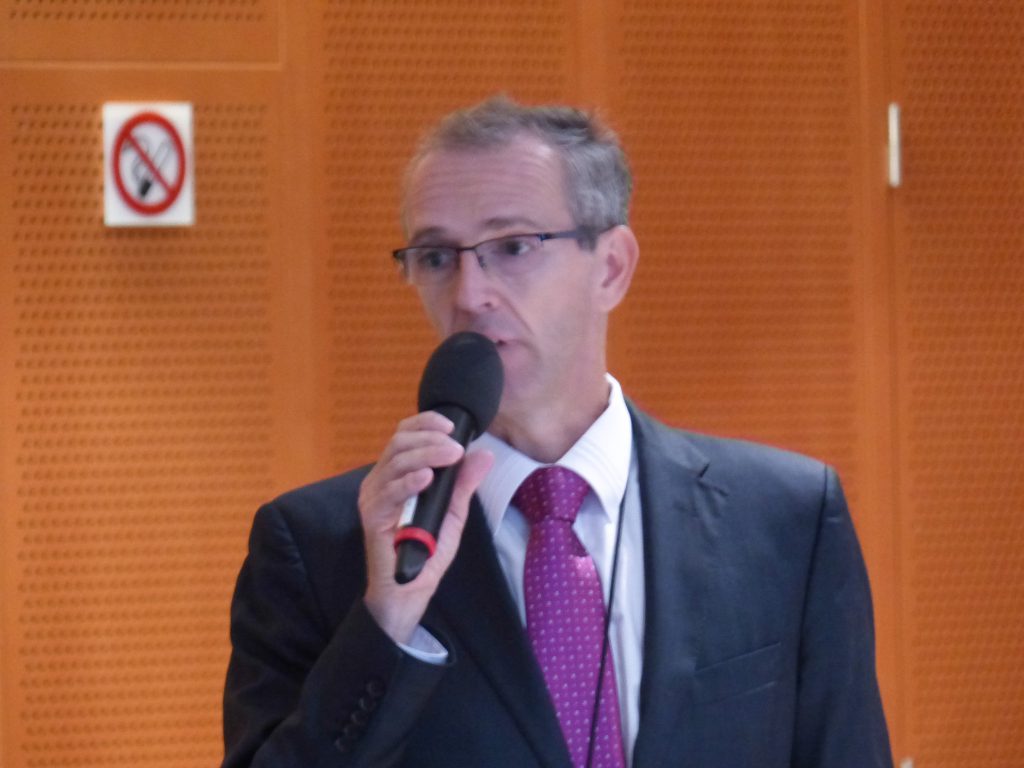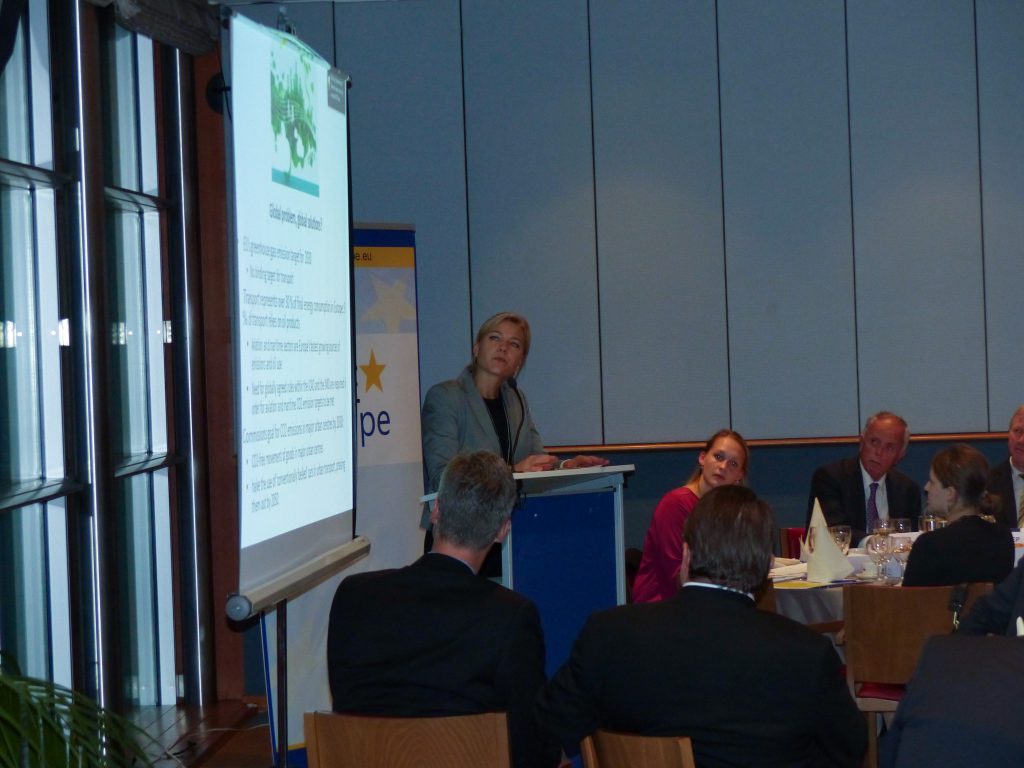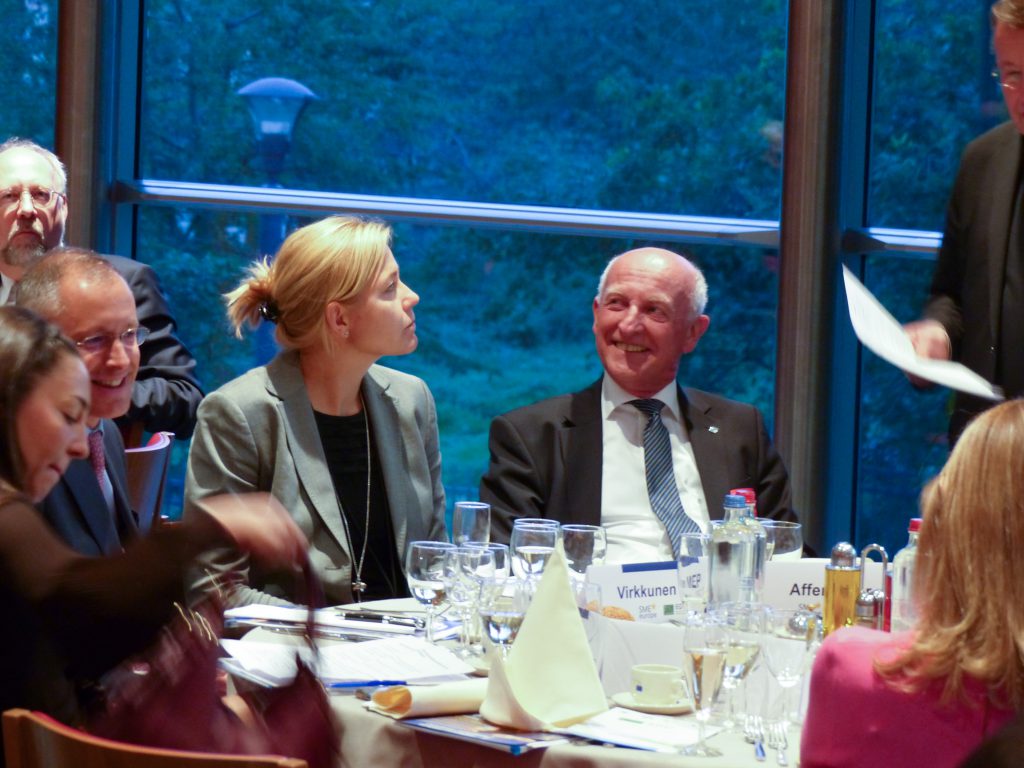Green vehicles for achieving a more sustainable transport system
On Tuesday, 29th of September 2015, SME Europe of the EPP in cooperation with EGVI (European Green Vehicles Initiative) invited to a Working Dinner in the European Parliament on the topic of “Green vehicles for achieving a more sustainable transport system”. Honorary President of SME Europe MEP Dr. Paul Rübig, Member of the Committee on Industry, Research and Energy, opened the event with mentioning that this is a great stage for international automotives and policy makers since the parliament has always welcomed an open debate and all speakers and table hosts.
MEP Ivan Štefanec, Member of the Committee on the Internal Market and Consumer Protection, stated four challenges which must be taken: firstly, the implementation of new digital technologies, secondly new energy resources, thirdly how to protect the environment and last but not least that green vehicles have to be made more attractive to consumers.
The first key note speaker MEP Henna Virkkunen, shadow rapporteur on “Draft report on sustainable urban mobility” and member of the Committee on Industry, Research and Energy, emphasized more attention to the transport sector in general, like research and train connection. This is in high interest of urban areas and their problems in air quality and the overcrowded road traffic. “In that case it’s very important how cities are planned and to put a greater focus on cycling and walking” Mrs. Virkkunen stated. Finland has been mentioned as one of the best examples for biofuels, because they have opted to use obligations for biofuels in combination with a fair and objective taxation system.
MEP Claudia Tapardel, shadow rapporteur on “Draft report on the implementation of the 2011 White Paper on Transport: taking stock and the way forward towards sustainable mobility” and member of the Committee on Transport and Tourism, started her speech with the statement about the industry as a large employment and therefor it’s important to gain consumer trust in the industry. Mrs. Tapardel stressed that “a deep partnership between policy makers and industry is on high interest, but the key to success is the consumer. There is no other solution for a sustainable transport system.” She called for more resource efficiency and enhanced quality control in order to ensure new transport systems.
Acting Chairman of EGVI, Mr. Jean-Luc di Paola-Galloni, underlined that “not only more transport, but better, smarter transports and more reliability are needed”.
The general objectives of the EGVI PPP (Public Private Partnership) are research, development and a clearer demonstration of technologies to enable more energy efficient vehicles by using alternative powertrains and by strengthening the future competitiveness of the automotive industry. All this can happen in relation of the supporting policy goals of the EU Transport White Paper. He also accentuated that for different systems different solutions have to be planned with focus on combination on efficiency and non-productive sectors.
Rolf Diemer, Head of Unit – Economic Analysis and Impact Assessment in DG-MOVE of the European Commission, empasized the high relevance of the White Paper on transport with its vision 2050. The paper included a number of targets, for example the 10 year programme for innovation, which are running according to plan. Mr. Diemer pointed out the opportunities of intelligent transportation systems which can lead to better transport management of companies. This could be achieved by raising the budget and thereby creating a better financial environment for these innovations. The White Paper continues to be important as it bears a high political meaning. In 2014, EU politicians agreed on a reduction of CO2 emissions by 40% until 2030, thereby paving the way for the goal of the White Paper which attempts to reduce emissions by 60% until 2050. At last he advised for implementing cleaner infrastructure, as cleaner vehicles will only succeed under this environment.
Then the question and answer session started with Josef Affenzeller, Director of AVL, as the moderator. This was followed by a lively discussion in which MEP Arne Gericke, Member of the Committee on Employment and Social Affairs, MEP Inés Ayala Sender, Member of Committee on Transport and Tourism, Rudolf Strohmeier, Deputy Director-General in DG RTD and Lars Göran Rosengren, Senior Advisor in Volvo, came forward with questions concerning the topic and their opinions. They for example pointed out to emphasize more what has been achieved in green vehicles and to be careful about the issue of bio fuels as rain forests could suffer under policies favouring this type of fuel.




